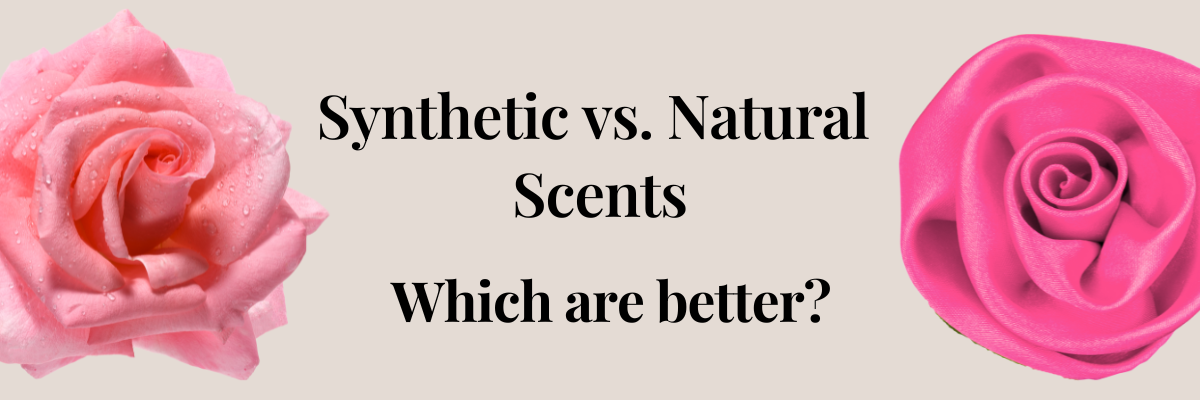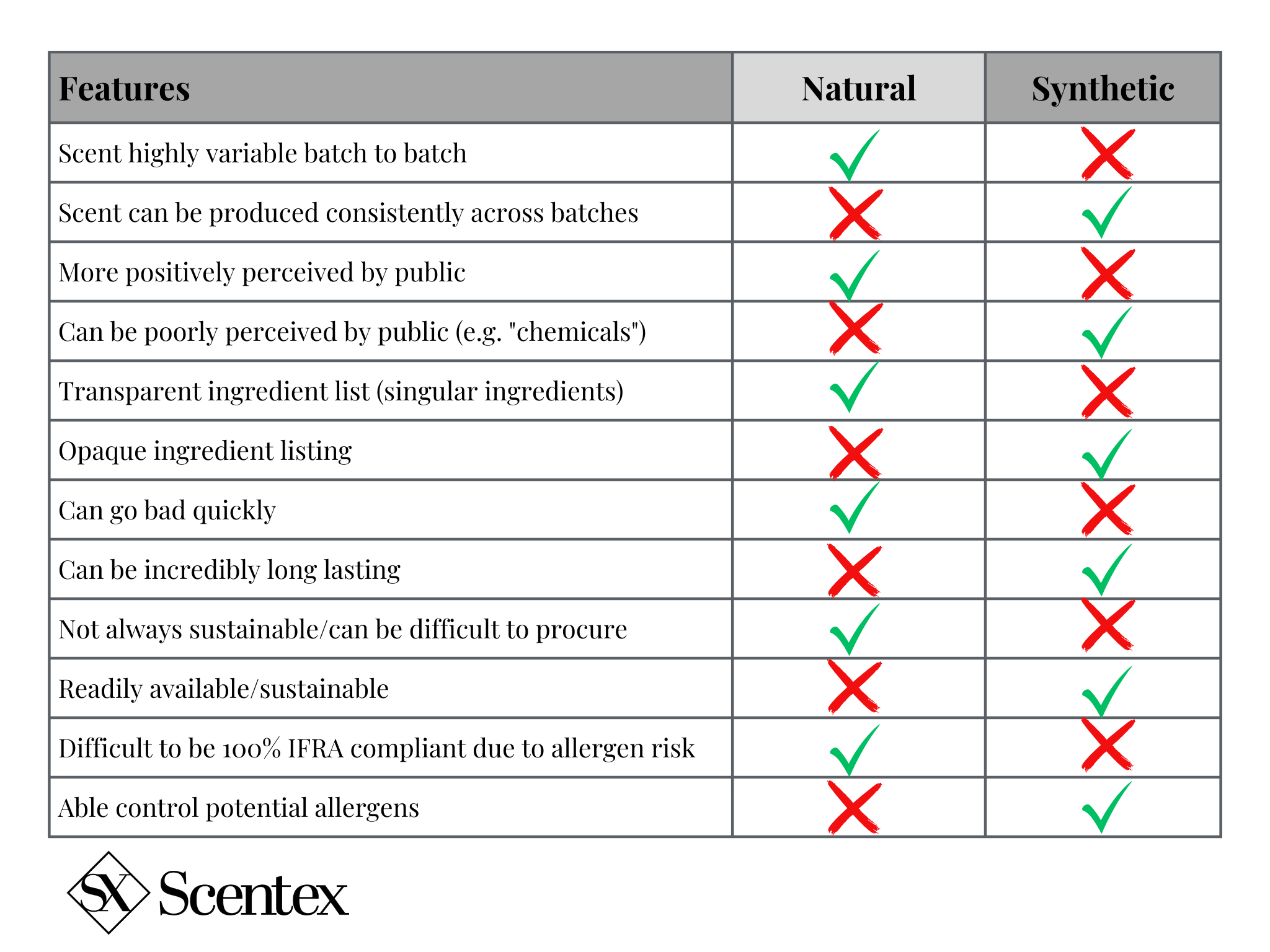Synthetic vs. Natural Scents: Is It OK to Fake It?

What’s the difference between a synthetic and a natural fragrance?
For the purposes of this piece, we will be using the below to define natural and synthetic:
Natural fragrances being fragrances derived directly from plants through extraction of essential oils and botanical extracts, and synthetic fragrances being lab-created chemical compounds, often designed to mimic natural scents, but can also create completely unique scents.
“What is fragrance? A fragrance is a chemical mixture that has a smell or odor–but it is so much more besides, encompassing cultural, historical, social, economic and emotional value.” – International Fragrance Association (IFRA)
First, it is important to remember, our world is made up of chemicals. Everything we touch, breathe, eat—whether occurring naturally or manufactured by humans, are composed of chemicals. Though often demonized, chemicals are not inherently bad or dangerous. It very much depends on your personal tolerance, and of course, your personal preference which chemicals you are able to tolerate and comfortable with.
Which is better, natural fragrance or synthetic fragrance?
It depends. How you’re using the scent, if you (or anyone in your life) has allergies or aversions, among other things. We’ve compiled a helpful list of pros and cons for synthetic and natural fragrances below.

Side by side, it starts to look like synthetic fragrances may have a slight edge over natural: they’re more sustainable, can last longer, are more allergen friendly, and can be more standardized. Of course, scent, like beauty, is ephemeral, evolving, and inextricably linked to and influenced by the space in which it exists. There is something magical about knowing your perfume is made from the Mul family’s roses, or handmade by one of the only perfumers in the world still practicing the ancient and labor intensive art of enfleurage scent extraction. Truly, we don’t think one is better than the other.
For our event experiences, to achieve the longevity, strength, and complexity of scent that we want, we find combining natural and synthetic fragrances serves our guests best. For example, using natural fragrances of leather or musk would not only be almost impossible to find, it would be highly unappetizing. A synthetic version means we have something that is not only consistent, it’s safe and far more appealing. Sandalwood, another popular scent, is vulnerable to over-harvesting. Scentex feels it’s more sustainable to use synthetic sandalwood when in our interactive stations and event scentscapes, to minimize environmental impact.
TLDR:
There are pros and cons of both natural and synthetic fragrances. Both have their place in the world of scent, and at Scentex, we balance many factors to build the best fragrance for your event experience. Be sure to communicate any known health concerns for you or your guests and a trusted scent expert can help ensure a safe and enjoyable experience


